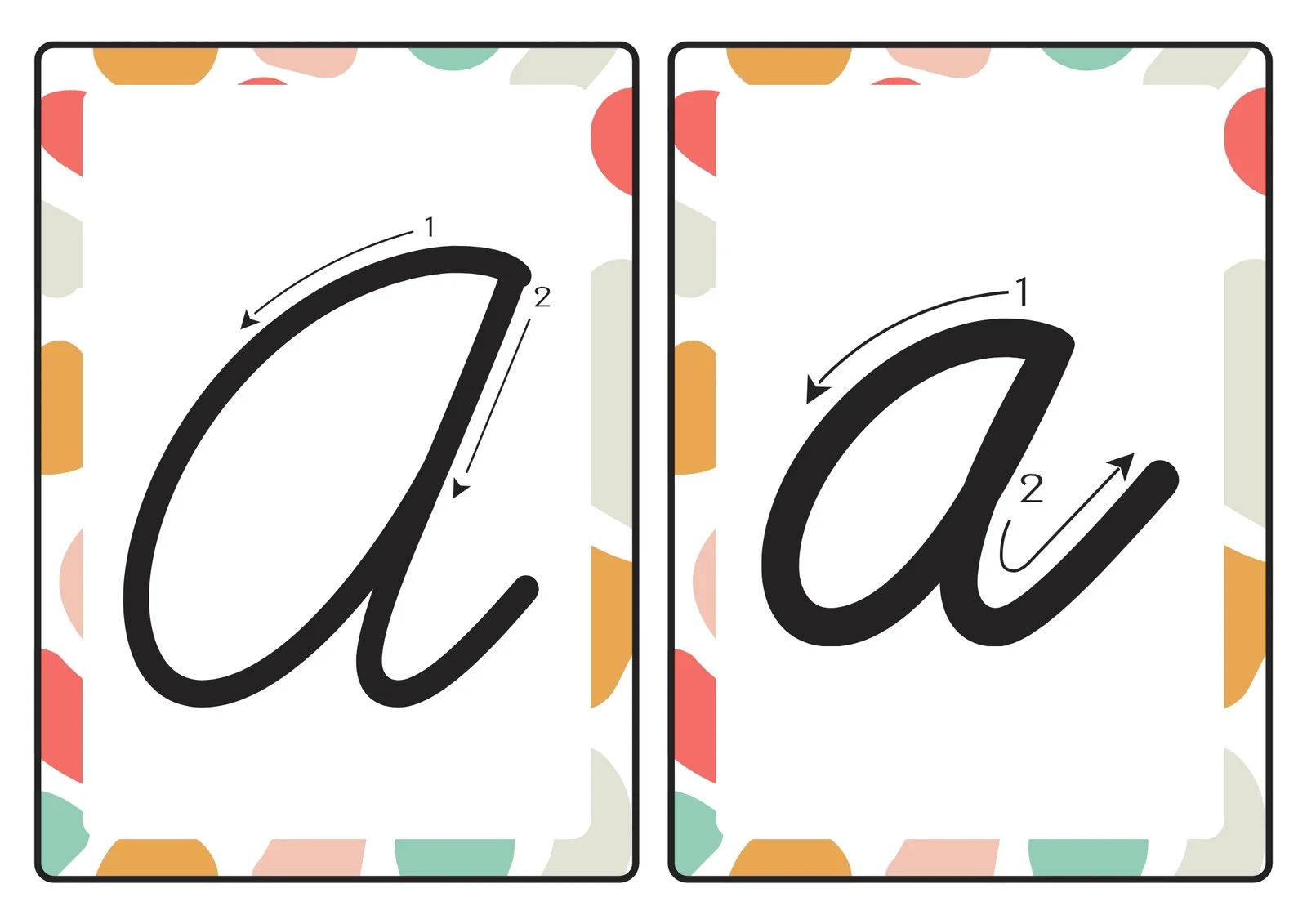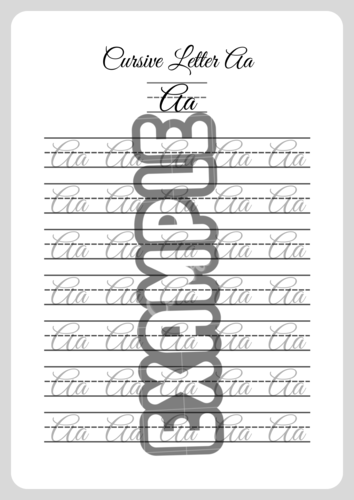
Transform your text into 96 unique styles across 12 categories!
Writing a cursive capital 'A' involves a specific set of strokes to create a smooth and connected script. Here's a step-by-step guide on how to write a cursive capital 'A':

Start slightly above the line. Make a slanted stroke downward and to the right, curving at the end. Without lifting your pen, create a horizontal stroke from right to left, connecting to the bottom of the first stroke. Move upward and to the left in a slanted direction. Connect the second stroke with a small downward curve to meet the horizontal stroke. Finish with a small upward stroke from the bottom center, meeting the end of the second slanted stroke.
Practice basic strokes individually before attempting the complete letter. Maintain a consistent slant and spacing between letters. Experiment with different styles while focusing on creating a smooth, connected flow.
Start slightly above the line. Make a small, rounded stroke downward and to the right. Without lifting your pen, create a small loop or curve to the left, connecting to the starting point. Continue with a small, upward stroke from the endpoint of the loop, curving slightly to the right.
If you are looking for a Cursive A worksheet in PDF format, you can find and download it. This online resource offers a free PDF worksheet that includes both uppercase and lowercase Cursive A letters for practice.

When you're learning how to write a in cursive, it's crucial to focus on the basic strokes and fluidity. Start by understanding how to make a cursive a, ensuring that your lines are smooth and connected. Practicing the capital A cursive style will elevate your handwriting, giving it a polished and elegant look.
To perfect your cursive capital A, pay attention to the starting point and the curves that define the letter. The lower case cursive a should flow naturally with other letters, creating a seamless writing style. Mastering the cursive uppercase A can add a formal touch to your cursive writing, making it ideal for titles or headings.
For those looking to add flair to their writing, the capital letter A cursive style can be embellished with extra loops and swirls. Experimenting with a fancy cursive a can make your writing stand out with a unique and artistic touch. Finally, using capitalized cursive A along with cursive a copy and paste options allows for easy replication and consistency in your work.
Cursive writing has long been admired for its flowing, elegant style that adds a touch of sophistication to any text. Among the many letters that form the foundation of cursive script, the letter "a" stands out for its distinctive appearance and the finesse required to master it. Writing the a in cursive lowercase is a skill that many students and calligraphy enthusiasts strive to perfect. The lowercase a in cursive begins with an upward stroke from the baseline that curves to the right, forming an oval shape, before descending back to the baseline with a smooth finishing stroke. This fluid motion not only makes the letter aesthetically pleasing but also facilitates the seamless connection with subsequent letters, maintaining the continuous flow characteristic of cursive writing.
When it comes to the cursive a uppercase, the challenge and artistry become more pronounced. The capital a in cursive is crafted with an initial upward stroke that sweeps into a large loop, descending gracefully to form the left side of the A, before looping again to complete the right side. This intricate design results in a beautiful, ornate character that stands out in any text. The distinction between the cursive a uppercase and its lowercase counterpart lies in its additional flourishes and loops, which add to its grandeur and visibility when placed at the beginning of a sentence or a proper noun.
Understanding the nuances of the cursive a lowercase is crucial for achieving fluency in cursive writing. The a in cursive lowercase must be crafted with precision to ensure that it can seamlessly connect to other letters in a word. This connectivity is one of the defining features of cursive writing, making it both practical and visually appealing. The elegance of the lowercase a in cursive lies in its simplicity and the ease with which it can be written, enabling writers to maintain a steady flow of writing without lifting the pen from the paper.
Practicing the cursive a uppercase requires a bit more patience and finesse. The capital a in cursive is not only larger but also includes more intricate details, making it a bit more challenging to master. However, once perfected, it can add a significant amount of elegance to any piece of writing. The beauty of the cursive a uppercase is especially evident in formal documents and artistic calligraphy, where its ornate design can be fully appreciated.
In conclusion, mastering both the a in cursive lowercase and the cursive a uppercase is essential for anyone looking to improve their cursive writing skills. Each letter, whether it’s the lowercase a in cursive or the capital a in cursive, brings its own unique charm and complexity to the table. By practicing these letters, one can achieve a greater level of fluency and elegance in their cursive writing. The cursive a lowercase helps maintain the fluidity of the text, while the cursive a uppercase adds a touch of sophistication and distinction. Together, they showcase the beauty and versatility of cursive writing, making it a timeless and valuable skill to acquire. As with any art form, the key to mastering cursive lies in consistent practice and a deep appreciation for the aesthetic qualities of each letter.